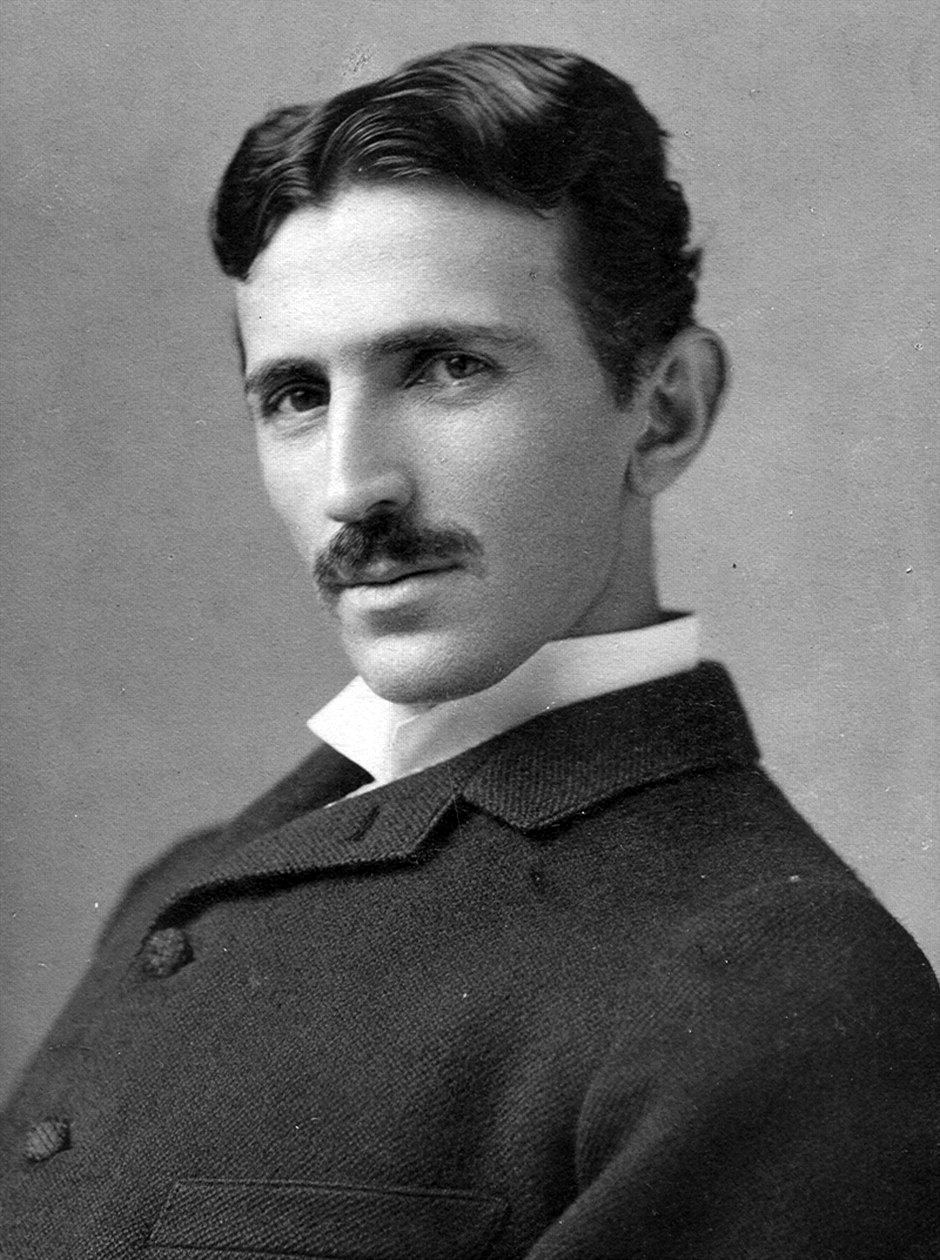Nikola Tesla Frases famosas
About the failure of Tesla's "World System" project. http://en.wikiquote.org/wiki/Nikola_Tesla
Nikola Tesla frases e citações
Today's scientists have substituted mathematics for experiments, and they wander off through equation after equation, and eventually build a structure which has no relation to reality.
Fonte: "Radio Power Will Revolutionize the World". Modern Mechanics and Inventions, July, 1934. http://en.wikiquote.org/wiki/Nikola_Tesla
Texto publicado na Century Illustrated Magazine, em Junho de 1900
Nikola Tesla: Frases em inglês
Fonte: My Inventions (1919)
Contexto: He declared that it could not be done and did me the honor of delivering a lecture on the subject, at the conclusion he remarked, "Mr. Tesla may accomplish great things, but he certainly will never do this. It would be equivalent to converting a steadily pulling force, like that of gravity into a rotary effort. It is a perpetual motion scheme, an impossible idea." But instinct is something which transcends knowledge. We have, undoubtedly, certain finer fibers that enable us to perceive truths when logical deduction, or any other willful effort of the brain, is futile.
“Marconi is a good fellow. Let him continue. He is using seventeen of my patents.”
On being informed that Marconi was transmitting wireless messages across the Atlantic Ocean, as quoted in "Who Invented Radio?" at PBS.org http://www.pbs.org/tesla/ll/ll_whoradio.html, and in Tesla : The Modern Sorcerer (1999) by Daniel Blair Stewart, p. 371
“The progressive development of man is vitally dependent on invention.”
Fonte: My Inventions (1919)
Contexto: The progressive development of man is vitally dependent on invention. It is the most important product of his creative brain. Its ultimate purpose is the complete mastery of mind over the material world, the harnessing of the forces of nature to human needs. This is the difficult task of the inventor who is often misunderstood and unrewarded. But he finds ample compensation in the pleasing exercises of his powers and in the knowledge of being one of that exceptionally privileged class without whom the race would have long ago perished in the bitter struggle against pitiless elements. Speaking for myself, I have already had more than my full measure of this exquisite enjoyment; so much, that for many years my life was little short of continuous rapture.
Quoted in 'Tesla, 75, Predicts New Power Source', New York Times (5 Jul 1931), Section 2, 1.
Quoted in 'Tesla, 75, Predicts New Power Source', New York Times (5 Jul 1931), Section 2, 1.
A Means for Furthering Peace (1905)
New York Times (19 October 1931)
"Radio Power Will Revolutionize the World" in Modern Mechanics and Inventions (July 1934)
The Problem of Increasing Human Energy (1900)
My Inventions (1919)
My Inventions (1919)
A Means for Furthering Peace (1905)
In 'The Problem of Increasing Human Energy: With Special Reference to the Harnessing of the Sun’s Energy', Century Illustrated Magazine (Jun 1900), 60, No. 2, 180.
A Means for Furthering Peace (1905)
Man's Greatest Achievement (1908; 1930)
A Means for Furthering Peace (1905)
City Counsel Zagreb, 24th May 1892; as quoted in [Milčec, Zvonimir, Nečastivi na kotačima: Civilizacijske novosti iz starog Zagreba, Bookovac, Zagreb, 1991, 25, 439099360, Croatian]
My Inventions by Nikola Tesla, ISBN 978-1614270843 , p. 45
A Means for Furthering Peace (1905)
My Inventions (1919)
"When woman is boss", Colliers, January 30, 1926
My Inventions (1919)
On the Wardenclyffe Tower, in "The Future of the Wireless Art" in Wireless Telegraphy and Telephony (1908)
As quoted in "Tesla Says Edison Was an Empiricist", The New York Times (19 Oct 1931), 25.
"The Transmission of Electric Energy Without Wires" in Electrical World and Engineer (5 March 1904)
My Inventions (1919)
My Inventions (1919)
A Means for Furthering Peace (1905)
My Inventions (1919)
"Experiments With Alternating Currents of Very High Frequency, and Their Application to Methods of Artificial Illumination" (20 May 1891)
